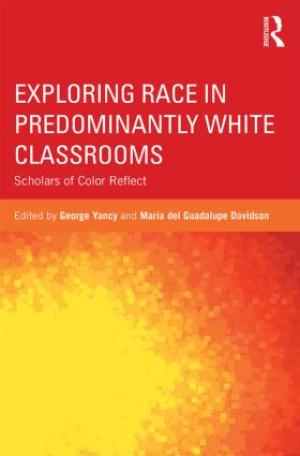Resources
The “Make Your Own Religion” class project was designed to address a perceived need to introduce more theoretical thinking about religion into a typical religion survey course, and to do so in such a way that students would experience the wonder of theoretical discovery, and through or because of that discovery hopefully both better retain knowledge gained from the project and nurture within themselves the practice of thinking more analytically about religion (and other social and cultural things). Despite a number of challenges and unresolved questions associated with the project, it has proven relatively successful at introducing and provoking theoretical thinking about religion in a compressed period of time, without taking an inordinate number of class periods away from the survey itself. A brief description and analysis of the assignment is followed by four short responses.
This series of short essays considers the complex choices and decision-making processes of instructors preparing to teach, and continuing to teach, introductory courses in religious studies. In a paper originally presented in the University of Chicago's “The Craft of Teaching in the Academic Study of Religion” series, Russell McCutcheon explores a “baker's dozen” of such choices and the larger pedagogical problems with which they are entwined, ranging from classic questions of skill development and content coverage to philosophical concerns around students' identification with their topics of study and institutional concerns around governance and assessment. Aaron Hollander provides a brief introduction and four doctoral students at the University of Chicago Divinity School respond to McCutcheon's essay, widening its scope, testing its applicability, and interrogating its undergirding suppositions from the perspective of early-career educators in the field.
One page Teaching Tactic: using visual arts in the biblical studies classroom.
One page Teaching Tactic: a method for engaging students' religious questions in an Islamic Studies course
This essay explores classroom dynamics when students identify and connect their own painful experiences to structural racism or ethnocentrism exhibited in the Holocaust or parts of Jewish history. The intrusion of this proximal knowledge can be an obstacle to student learning. If engaged by professors, however, I argue that proximal knowledge can be a catalyst that promotes learning. Social scientific theory provides a useful lens for helping students to better grasp and contextualize both their old experiences and the new materials that are being taught in the course within the larger structural frames of race, religion, and ethnicity that they have selected, but may not fully appreciate. Reflective guided journaling is an essential part of the learning experience.
This article emerges from the experience of incorporating doctoral students into our Contextual Education (CXE) Program at Emmanuel College (Toronto). This change, I argue, helped us to distinguish more clearly among and thus distinctly orient the different kinds of relationships and theological practices that make up our program towards the often-elusive goal of curricular integration. After outlining a definition of integration, I contextualize that definition in our particular practices at Emmanuel College using Kathryn Tanner's (1997) understanding of theology as a cultural practice as my guide. I then offer a brief overview of our CXE Programs to demonstrate how nurturing strategic partnerships within them has made certain forms of integration possible for our students. I close with some activities for practical application in other CXE contexts.
In this essay, I explore an exam format that pairs multiple-choice questions with required rationales. In a space adjacent to each multiple-choice question, students explain why or how they arrived at the answer they selected. This exercise builds the critical thinking skill known as metacognition, thinking about thinking, into an exam that also engages students in the methods of the academic study of religion by asking them to compare familiar excerpts and images. As a form of assessment, the exam provides a record of students' knowledge and their thought processes, and as a learning strategy, it encourages students to examine the thought processes they use to understand religion(s) and its many manifestations.
In this essay I propose that using online tools to connect geographically-separated classrooms for real-time collaborative learning experiences may effectively develop intercultural competency in the religious studies classroom. I explore personal examples from several international and inter-institutional collaborations with Jacques Derrida's reflections on hospitality to explain how using online tools in this way productively puts into question conventions about place, host, and guest. This engagement of students in collaboration with others beyond their classroom is effective because it takes the focus of learning past facts students might learn towards how they are communicating to learn.

Although multicultural education has made significant gains in recent years, with many courses specifically devoted to the topic in both undergraduate and graduate education programs, and more scholars of color teaching in these programs, these victories bring with them a number of pedagogic dilemmas. Most students in these programs are not themselves students of color, meaning the topics and the faculty teaching them are often faced with groups of students whose backgrounds and perspectives may be decidedly different – even hostile – to multicultural pedagogy and curriculum. This edited collection brings together an interdisciplinary group of scholars of color to critically examine what it is like to explore race in predominantly white classrooms. It delves into the challenges academics face while dealing with the wide range of responses from both White students and students of color, and provides a powerful overview of how teachers of color highlight the continued importance and existence of race and racism. Exploring Race in Predominately White Classrooms is an essential resource for any educator interested in exploring race within the context of today’s classrooms (From the Publisher)

Journal Issue.
Wabash Center Staff Contact
Sarah Farmer, Ph.D
Associate Director
Wabash Center
farmers@wabash.edu